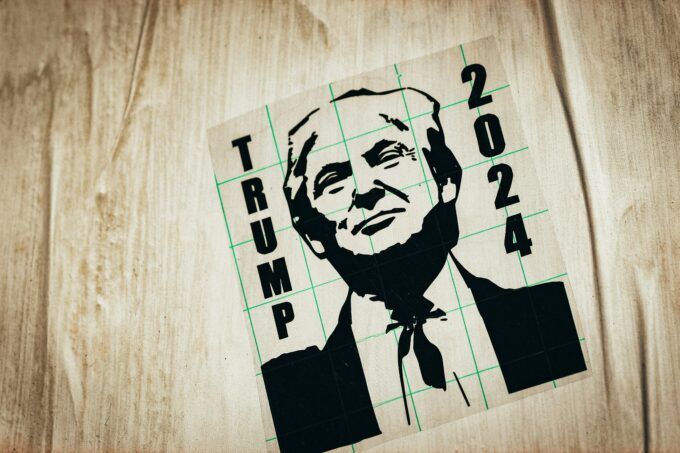In France, a Bold New Take on ‘Liberté, Egalité, Fraternité’

The Coat of arms of France – Public Domain
France has rendered unto the world, over the past quarter-century, a distinct public service. Thanks to the trailblazing research of three French scholars — Thomas Piketty, Emmanuel Saez, and Gabriel Zucman — we know much more about the world’s maldistributed wealth than ever before.
Could France now be on the brink of making another significant contribution to a more equal global future? That question has suddenly become surprisingly timely. French voters, after an unexpected turn of political events, will shortly have a real opportunity to begin shearing our global super rich down to something approximating democratic size.
France’s surprising turn of events started earlier this month when millions of voters went to the polls to elect the 720 members of the next European Parliament. For Europe’s centrist political leaders, most notably French president Emmanuel Macron, the results would turn out to be a disaster. Candidates with Macron’s French centrist coalition garnered less than half the 31 percent of the vote that the French far-right coalition, the anti-immigrant Rassemblement National, took in.
Macron’s reaction? He quickly dissolved the French National Assembly and scheduled a “snap election” to replace it, with the first voting round coming June 30 and the second July 7. Then, right on the heels of Macron’s move, another stunning surprise. In the June 9 European Parliament balloting, France’s four top left parties had competed separately. For the new French National Assembly elections, the four parties announced, they would be fielding a single, unified slate of candidates.
That single slate — the Nouveau Front Populaire, the New Popular Front — has what many observers see as a real shot at beating the election’s initial favorite, the French far-right coalition led by Marine Le Pen. And if the Nouveau Front Populaire does gain legislative control, France could soon be experiencing a distinct egalitarian shift. The Nouveau Front Populaire, as Jacobin analyst Harrison Stetler notes, has “laid out a radical program to rebuild France’s dilapidated democracy.”
The New Popular Front has framed this “radical program” as a three-part “legislative contract” with French voters. The first part lays out the “emergency” steps the new government will take in its first 15 days in office. The second covers the New Popular Front’s action plan for its first 100 days and the third the longer-range “transformations” the Front plans on pursuing.
The struggle for a more equitable distribution of French income and wealth figures prominently throughout all these three stages. The Front’s “legislative contract,” points out Jacobin’s Stetler, “would mark a clean break” from the Macron years and their “transfer of economic power to the wealthiest.”
In the emergency first stage, the Front is promising to advance a quick hike to the French minimum wage coupled with new taxes on “the superprofits of agro-industrialists and mass retailers.” The first 100 days will concentrate on enacting five legislative packages that include moves “to abolish the privileges of billionaires.”
Among those moves: increasing the progressivity of the French income tax by adding new tax brackets that will subject ultra-high incomes to higher overall tax rates, establishing a meaningful tax on vast accumulations of wealth, and setting a limit on how much the already rich can inherit.
The New Popular Front legislative contract also aims to turn French corporations into something more than wealth-accumulation machines for the execs who run them.
Those corporate accumulation machines have of late been running in overdrive. One current French CEO, the LVMH luxury giant’s Bernard Arnault, is now sitting upon the world’s third-largest personal fortune. The Bloomberg Billionaires Index puts his latest net worth at just under $200 billion.
Fortunes like Arnault’s would shrink significantly if a New Popular Front administration gets to take power. The Front’s legislative contract promises to “make employees real actors in economic life by reserving for them at least a third” of the seats on corporate boards and expanding the worker “right of intervention” in how companies operate.
The legislative contract the Front is proposing would, in still another egalitarian move, “create a right of pre-emption to allow employees to take over their business in the form of a cooperative.”
The New Popular Front’s vision extends outward to Europe as well. The Front’s legislative contract calls for taxing Europe’s richest — and corporate “superprofits” — at the continental level to increase the budget resources available to the European Union.
None of this agenda, of course, will ever see the light of legislative day unless the New Popular Front maintains enough unity among its four prime partners — France Insoumise, the Parti Socialiste, Les Écologistes, and the Parti Communiste — to top the far-right.
“It’s going to be either the far right,” as Greens party leader Marine Tondelier puts it, “or us.”
France’s most recent public opinion polling has the New Popular Front gaining on the ultra-right Rassemblement National, the National Rally party that Marine LePen leads, with the Front now up to almost 30 percent of the vote and the National Rally hovering just a few points above that.
Meanwhile, in many districts across France, candidates with president Macron’s center-right party now appear likely to not even win enough votes in the June 30 first round — at least 12.5 percent of the total cast — to make it into the July 7 second.
And if the New Popular Front should win, then France just might be able to resume its role as a global egalitarian beacon. Back in the 20th century, the top 1 percent’s share of French wealth fell from 56.7 percent of the nation’s total in 1905 down to a mere 15.8 percent in 1984. By 2022, that 15.8 percent share had rebounded up by over half, to 24 percent.
What does France’s future now hold? We’ll know much more in just a few weeks.


